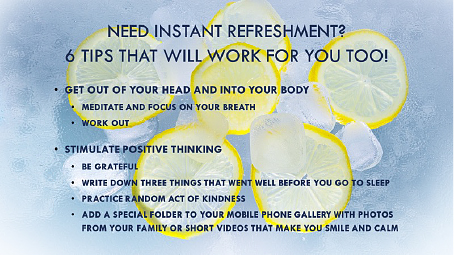 Image by Gerd Altmann from Pixabay
Image by Gerd Altmann from Pixabay
According to Dorie Clark 97% of senior leaders say being strategic or finding the next big idea is the most important thing for their organization’s success, yet 96% of them say they don’t have the time for strategic thinking.
https://hbr.org/2018/06/if-strategy-is-so-important-why-dont-we-make-time-for-it
This clearly shows that you are not alone. We all struggle!
So, how can you find more time while you are crazy busy?
Understand how you operate.
Another statistic: Tasha Eurich (“Insight”, 2017) has discovered that although 95% of people think they are self-aware, only 10 to 15% actually are. But knowing who you are, how you operate, and what triggers you is the most important step in finding time for strategic thinking or creativity. It has much more to do with Being than with Doing.
If your standard answer to “How are you?” is “Busy?” you may need to ask yourself, if the things that keep you busy are actually the things that keep you from real progress. When “too busy” becomes an excuse, you have a problem. When you are busy and putting in long hours, is this your only way to feel important or worthy? If you answer all emails within 30 minutes, or if you take on small, easy to complete tasks, is this because this gives you an energy boost, or because you feel more (false) control over your time?
Slow down to speed up and invest in your self-awareness to understand how you operate, what triggers you, and who you would like to become. There are many great books out there. One of my all-time favorites is Triggers (2015) from Marshall Goldsmith. Or invest in a quick, high-level assessment of your self-awareness. How self-aware are you? Take the quiz to find out http://www.insight-quiz.com/
Create space.
It is important to understand that strategic thinking or being creative doesn’t necessarily require large amounts of time. It is not time that you need, it is space.
Change the scenery and do some walking or exercise or meditation to get into a different brain mode, which will allow your mind to wander and to create a different vibe, so that new thoughts can arise. You may initially feel uncomfortable with stillness or downtime, but don't cancel it out to become busy again.
Read a book to get inspired and draw new connections between your own questions and concepts from unrelated fields to get to your next bold idea.
And remove distractions (e.g. put your phone in flight mode and don't even think of about checking your emails on your laptop)! According to Adam Grant, emails, texts, and social media are eating 10% of your free time and fragmenting it into tiny pieces that are less productive.
Manage your energy.
Understand when during your day your energy is high. Daniel Pink describes in his most recent book “When” that perfect timing is everything in order to be productive. Think carefully about how you divide up your day, how you organize your routines, when to take your first coffee, or when to take the perfect nap.
Find ways to refresh your energy and take intentional, replenishing breaks. The below image shows a couple of tools that work very well for me, as I can easily embed them in my daily life, they are fun, and I experience instant change of my emotional and energy status. If you are interested in more details, please read my LinkedIn article “Need instant refreshment? 7 tips that will work for you too!”

Manage your time – Remember, you are your calendar.
Tom Peters (“The Excellence Dividend”, 2018) tells it like it is: “The calendar never lies”. You can claim something is your priority, but if your calendar doesn't reflect it, you're lying to yourself. Hold a formal weekly or monthly calendar review with yourself and analyze the trends.
Plan your day, don’t let it just happen and protect your free time. Prioritize the most important goals of the day. Block your calendar for strategic thinking or for being creative and honor this appointment with yourself as much as you would a meeting with your manager, client or coworker.
Ask for support.
Finally, make a commitment to yourself, talk about what you are doing, start small, and find someone to help you with achieving your goals. Whether it be a friend, coworker or family member, ask someone else to support you on your journey; someone who will keep you motivated and accountable.
Volker Hack is an Executive Director at one of the largest Contract Research Organizations and dedicated to Improve Health. He is an advocate for incorporating mindfulness into the work life.

